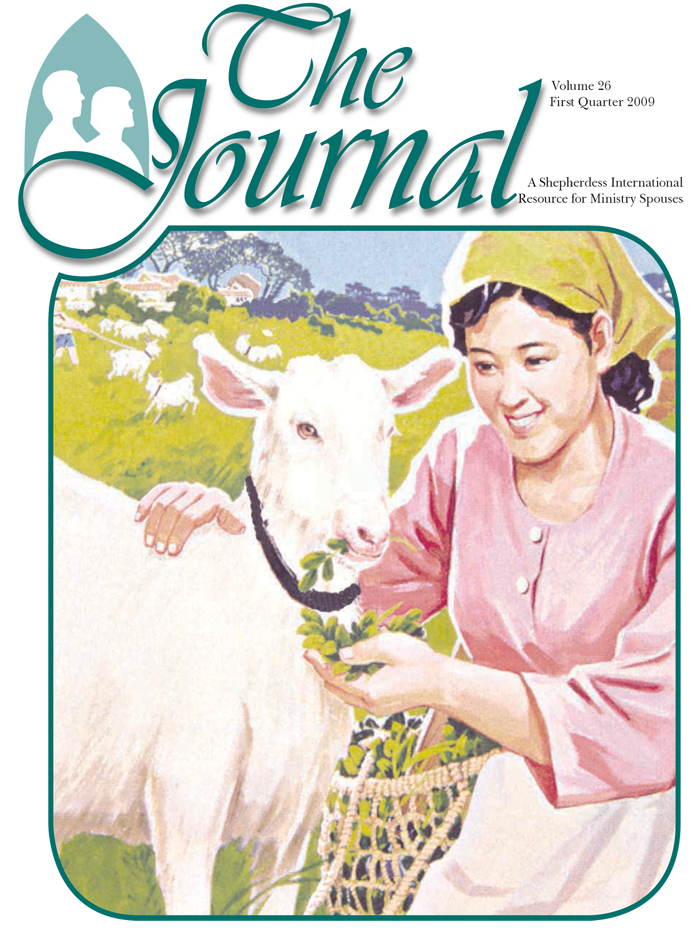It was a hot day in February. My husband and I were in front of the house where we would live, our new district. Everything was new for me. It was the first time I had lived in a small town. All of my life had been spent in the city where I was born. I thought for a moment, “This is a challenge for me. How do these people live? How do they dress? What are their customs? Will it be necessary for me to live, act, and dress differently from here on out so the church members will like me? Maybe it will be necessary for me to be something that I don’t want to be.”
The pastor's wife should be simple in all aspects because everyone looks at her. That is to say, they notice her house, her clothing, the words she speaks, the way she acts, how she walks, etc., but where does simplicity begin and carelessness end?
Does being simple mean that the house shouldn’t be nicely arranged or clean? What about personal appearance? Does she always have to dress in gray, have her hair pinned up and not fixed, have dirty fingernails, not take care of her skin, and use dress styles that are obsolete? Is it a sin to use perfume or to care for her skin, hair, and clothing? Let's see what the Bible has to say.
First Timothy 2:9 says: “I also want women to dress modestly, with decency and propriety, not with braided hair (fancy hairdos), etc.” I believe that the Bible teaches us that the women's attire is very important without being exaggerated or extravagant.
I am especially drawn to one of the beautiful books of the Bible, Song of Solomon. One text reads, “Behold, thou art fair, my love; behold, thou art fair ...” (4:1). These were the husband's words as he praised his beloved. How he loved his wife's physical beauty! She had a wonderful combination of qualities. She was intellectual but manually skilled. She cared for herself and took special pains to look good when she was with her husband. She wasn’t just a good example for him, but also for the women of that time. She was a virtuous woman, as described in Proverbs 31:10-31.
The Bible tells an interesting story in the book of Esther. It happened at Shushan, the capital of Persia, during the reign of Ahasuerus. In Esther 2 we read about a young woman named Esther. The king liked her, but first she had to have "beauty treatments" for 12 months—six months with myrrh oil and six months with sweet perfumes and feminine creams (verse 12). The result was that the king fell in love with her, put the royal crown on her head, and made her queen (verse 17). The story has a happy ending as it tells of her courage and consecration to God, her intelligence and care. It presents the reasons why she is one of the most admired women in the Bible.
The Lord, through the apostle John, made a comparison when He referred to the New Jerusalem: “And I John saw the holy city, new Jerusalem, coming down from God out of heaven, prepared as a bride adorned for her husband” (Rev. 21:2). What a beautiful comparison! Each time that I think of this verse, I am glad to know that God likes beauty. He made everything wonderful. He made us very special. I know we have many imperfections, not only external but internal, but we must not forget that as Christians, we should be an example to others. We should be careful about our attitude toward others. We are read as letters, so we should be careful how we present ourselves to others.
Being in that district with my husband helped me present my best image as a pastor's wife. But above all else, we need to be ourselves. We need to be authentic. We must remember that the church is concerned about our appearance, our home, our person, even the way we eat (we should be as healthy as possible). We are an example to others.
As a pastor's wife, you are admired not only by your husband but by your church. I hope that all aspects of your life influence others for good. Remember, we are distinguished, along with our husbands, as ambassadors of the celestial King.
